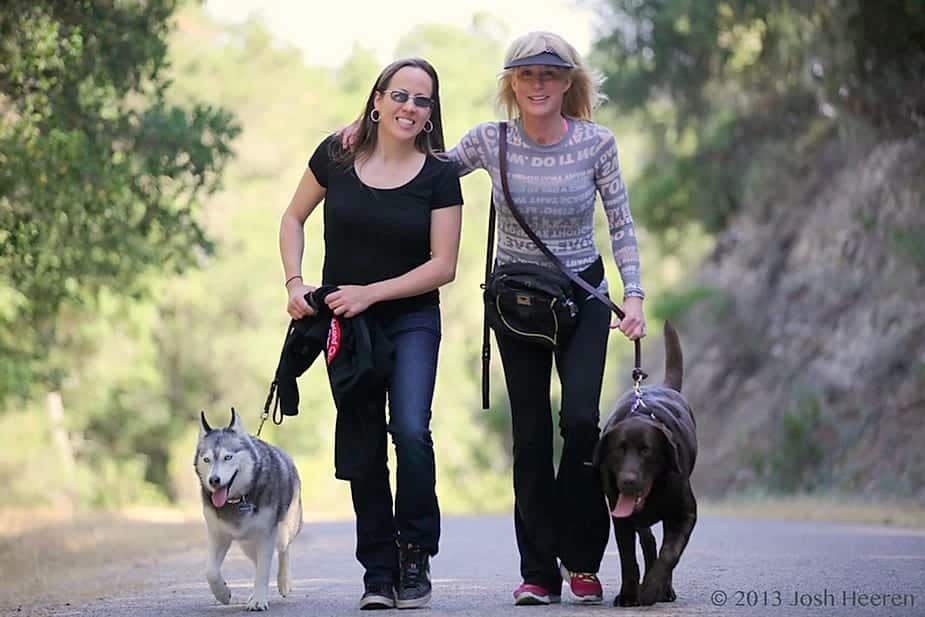
In 1996, author Byron Katie came out with a book called “Loving What Is.” It was of particular interest to me because only a few years earlier, I had literally clawed myself out of chronic depression and an eating disorder that began in my teenage years. I had recovered from over two years of darkness that consumed me. I was finally in a new and healthy place. “Loving What Is” confirmed many things I had already discovered, but didn’t realize they were actual psychological principles. I wanted to continue on this path…to “tweak” what I already knew and in particular, learn how to teach others how to heal as well.
I’m sure it was no coincidence that in 1998, I began shifting from just rescuing dogs to rescuing and rehabilitating them. I began to see like never before, that the behavioral issues of a client’s dog was largely contingent on the dynamics of the relationship between dog and dog owner. I listened as my clients poured their hearts out to me about their frustrations with their dogs, careers, relationships and even their children. I would often see these clients so differently than they saw themselves. It hurt my heart to see them negatively label themselves, be hypercritical of themselves, and espouse a defeatist attitude about their lives.
Recently I read two books that credited Byron Katie for her work, and this reminded me again of the principles I had embraced so many years ago, and had partially forgotten. In a nutshell, Katie’s greatest insight is that our own thoughts cause us to feel depressed, angry, or unfulfilled. In other words, we can live in a hell of our own making, or a heaven of our own making. Katie developed a method of “inquiry” to question our thoughts. Over the years, many others have shared and promoted her principles in their own books, workshops and self-help courses. However, Katie wasn’t the first to suggest that our thoughts influence our emotional well-being. Proverbs 23:7 says “As a man thinketh, so is he.” Powerful stuff.
Just as you can train your muscles in the gym, you can train the way you process the thoughts in your head. For example, the next time a negative thought comes in to your head, CHALLENGE IT! Don’t just buy in to what that unrelenting voice is telling you. Ask yourself if that thought is true, and if your answer is yes, ask yourself how you know it’s absolutely true. This isn’t about pretending to feel positive when you really don’t. It’s about challenging the ACCURACY of your thoughts. Judging others, judging ourselves, blaming others, anticipating failure, feeling guilty, attaching labels… the list goes on and on. All of these behaviors create suffering, not just for ourselves, but for others around us. Even the ones we love the most. And yes, even our dogs.
My challenge to you is simple. The next time a negative thought of any kind enters your brain, challenge it. Stand up to it. Talk back to it. Ask yourself if you know, without a shadow of a doubt, that it’s true. Then replace that thought to one of gratitude. Gratitude about anything – your health, your home, your job, the weather, your child, your life. You will have taken the very first step to shape your thought process to one that creates joy instead of suffering, success instead of failure, and love instead of judgment.
